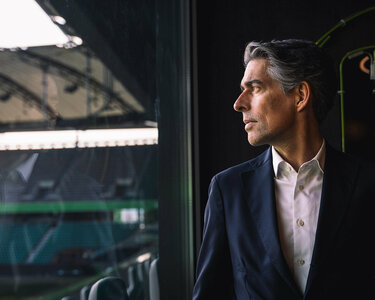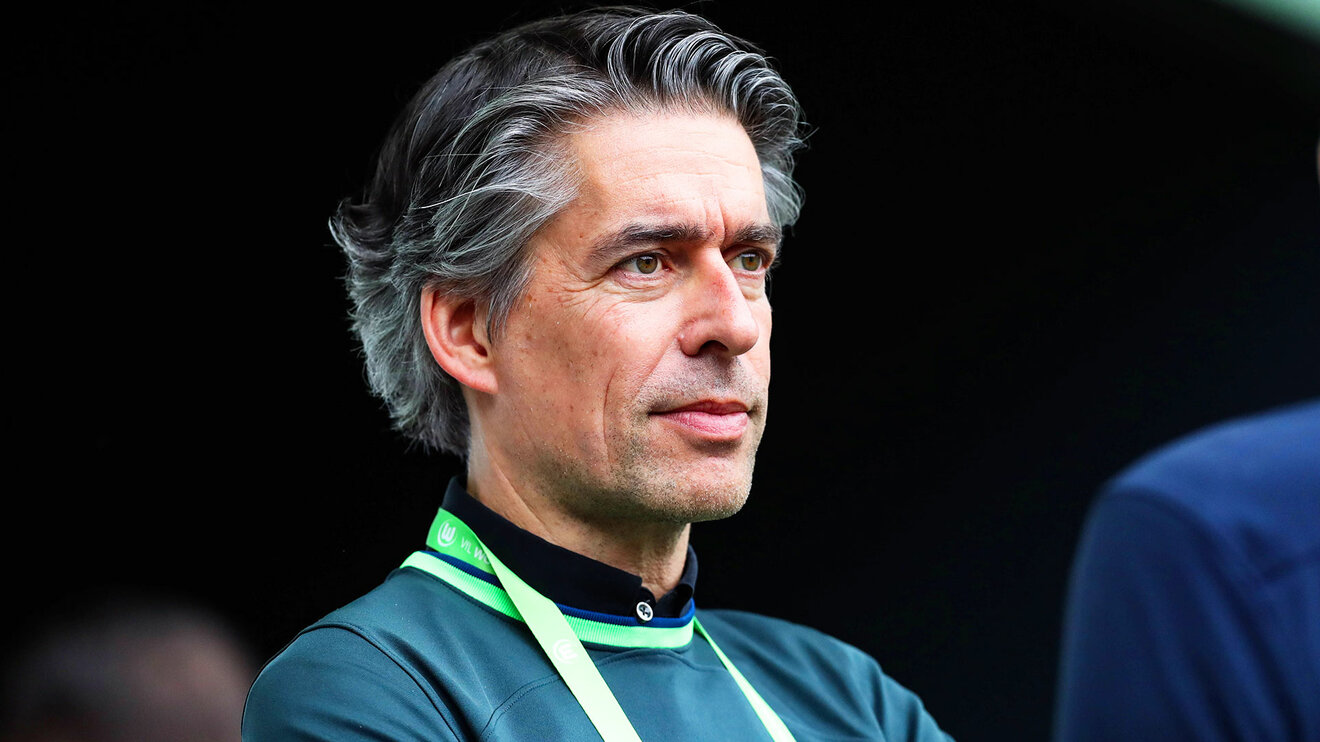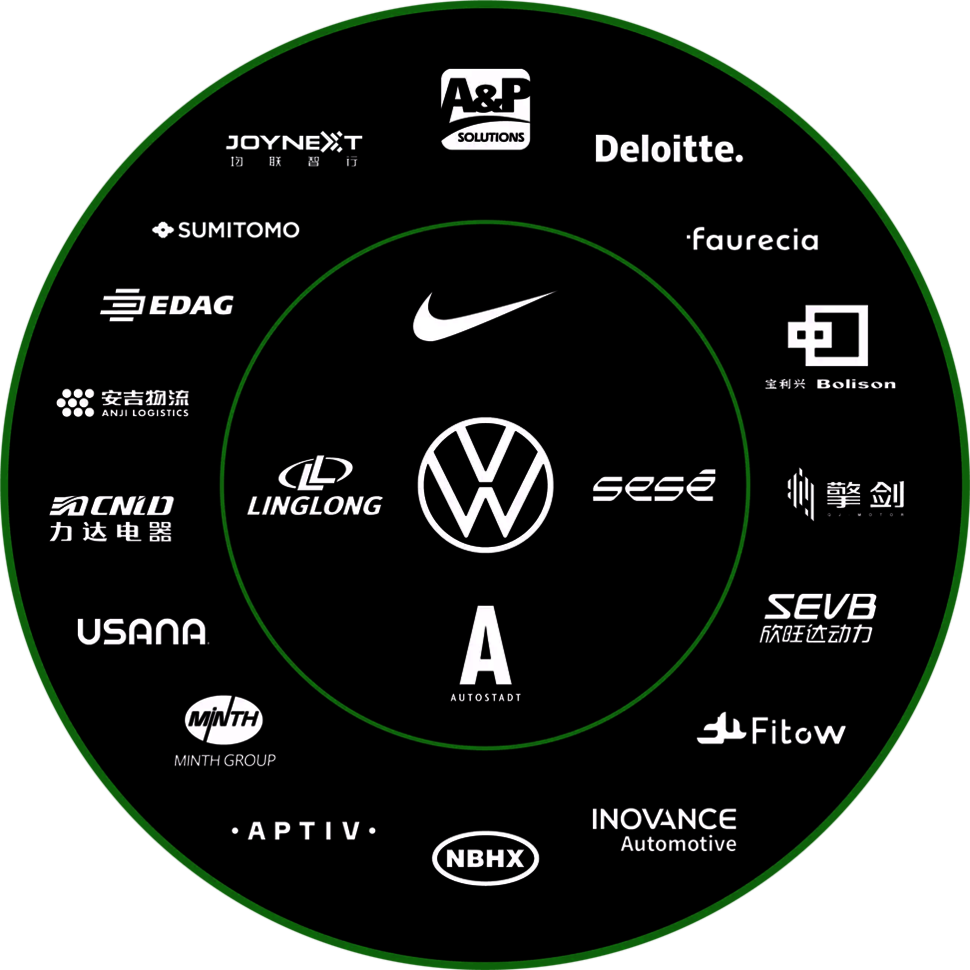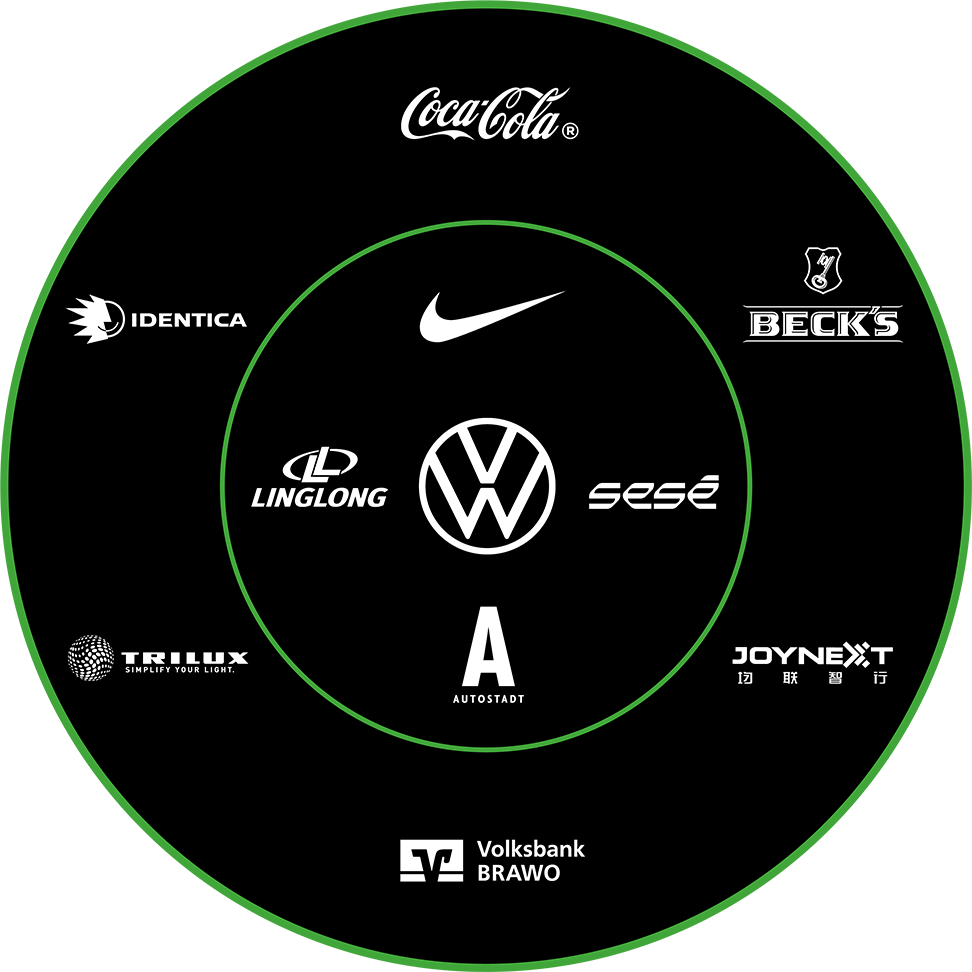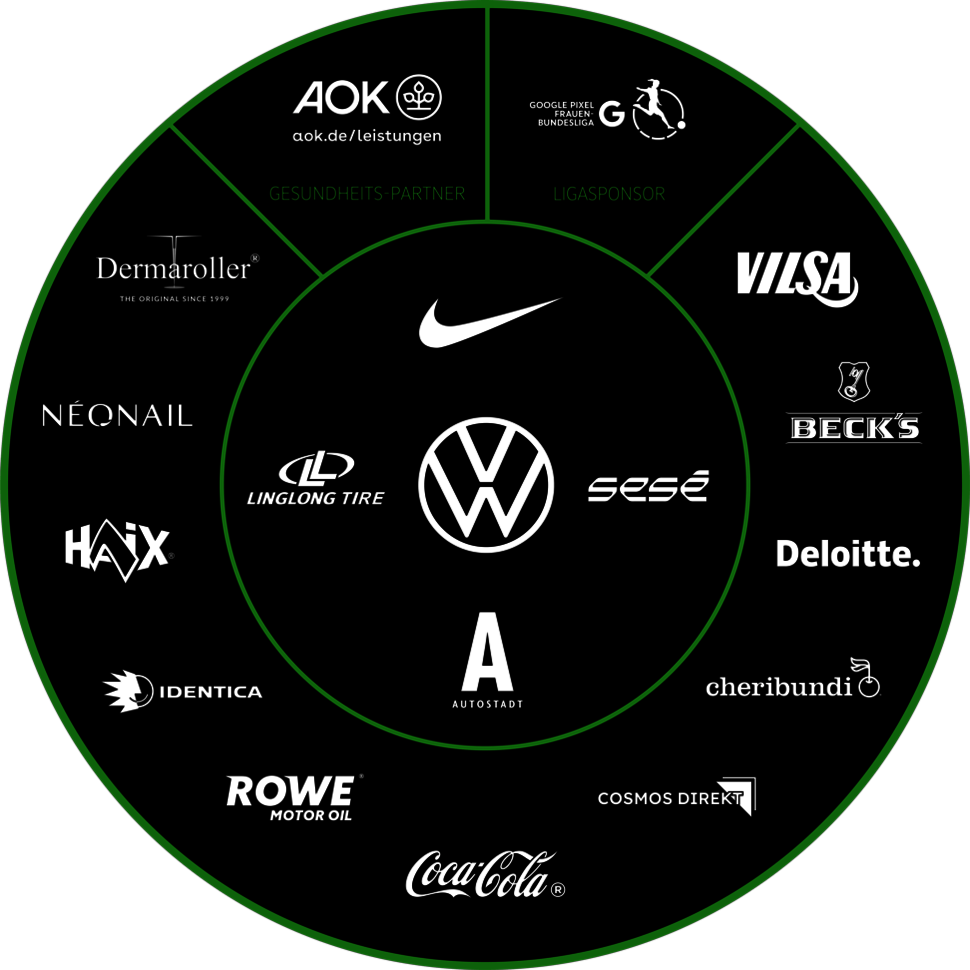There has certainly been a fair bit of upheaval over recent weeks and months as far as VfL Wolfsburg is concerned. With eight matches remaining in the season, Ralph Hasenhüttl was brought in to be the new head coach, while the Wolves also recently unveiled a new managing director for sport in Peter Christiansen. VfL managing director Michael Meeske spoke to us about why these appointments are a real opportunity for the club, in which area VfL is the benchmark for the Bundesliga and why you sometimes have to strike a balance.
Michael, last season saw a number of setbacks for the Green-and-Whites. How do you look back on it from your point of view?
Michael Meeske: “At the end of the day, how the season panned out was definitely disappointing – even if the men’s team avoided disaster and ended the season trending positively. We saw regular periods during which it was clear what the team was capable of, but in this respect we were lacking in stability and ended up dropping too many points. The women achieved their goal of winning a trophy thanks to a great win over Bayern in the DFB Cup final. That generates confidence and makes you excited for the future. The same obviously applies to the positive trend for the men and the subsequent outlook.”
In terms of sustainability, VfL Wolfsburg has been in a league of its own for quite a while now. How do you evaluate the season from an ecological perspective?
Meeske: “In this respect, the season was an incredibly successful one. We took home virtually every title that there was to win, from the German Sustainability Prize to the Global Sustainability Award for sports. We really are on the right track, and to a certain extent we are the benchmark for the Bundesliga. That’s a good feeling and it really encourages us to keep doing as we have been, because we’ve still got some big challenges ahead of us.”
One of those being the home straight in the ‘Race to Zero’. The clock in the Volkswagen Arena keeps ticking down. How is the race going?
Meeske: “In recent years, we have increasingly been forced to deal with external factors such as turmoil in the global markets, and that has meant that we are not entirely where we would like to be at this point in time. But we have a clear plan ahead of us and we are also always flexible when it comes to implementation, meaning that we can go with the best possible solutions.”
What is the biggest driver of CO2?
Meeske: “That’s quite clearly fan mobility. Around 60 per cent of our emissions are generated by comings and goings on matchdays. Basically, we can only have a limited influence on this aspect, but I see it as our responsibility to keep encouraging fans to rethink their habits. We know that everything can’t be solved overnight by electric vehicles, and we’re going to need a healthy balance here, too.”
How is VfL Wolfsburg compensating for the emissions that it still generates?
Meeske: “We are supporting certain projects that have been certified by neutral institutions, on global and on local levels. With the ‘From the field to the club shop’ initiative, we are helping small farmers in India to adapt their production of organic cotton, while in our local region, we are committing to reforesting woodland areas. Volkswagen has made a great deal of progress in the development of their own certificates and programmes and that creates a lot of synergies for us.”
